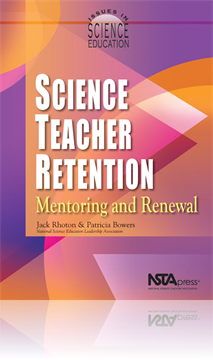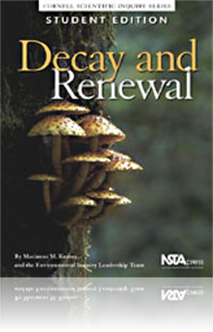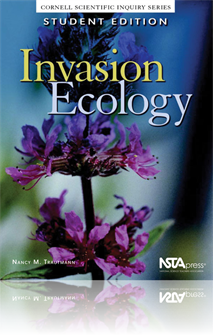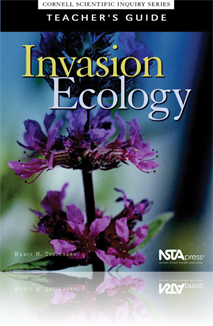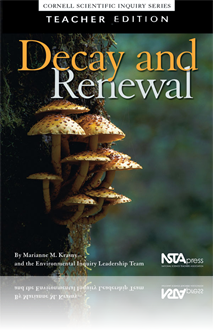All Teacher Preparation resources
Book Chapter
ASIST: An Induction Program for Science Teachers
Quality induction programs are needed for science teachers. This chapter describes one program—Alternative Support for Induction Science Teachers (ASIST)—developed specifically for beginning science teachers based upon their expressed and demonst...
Book Chapter
Honoring Adult Learners: Adult Learning Theories and Implications for Professional Development
Designers of adult learning must consider carefully the research on adult learning and change and factor this into learning designs. In this chapter, the author reviews a classic adult learning model and two contemporary theories—constructivism and...
NSTA Press Book
Decay and Renewal (Student Edition)
Most of us throw or flush things away every day without thinking about the fact that there is no “away.” Whether discarded substances break down or not, they affect our environment. By investigating the processes in wastewater treatment, composti...
By Nancy M. Trautmann, The Environmental Inquiry Team
NSTA Press Book
Invasion Ecology (Student Edition)
Strange intruders are invading our part of the world, threatening our environment and our economy. These newcomers and their impact on our ecological balance are the focus of Invasion Ecology, a guide to learning skills for investigating the behavi...
By Marianne E. Krasny, The Enviromental Inquiry Team
NSTA Press Book
Everyday Assessment in the Science Classroom
Make ongoing, classroom-based assessment second nature to your students and you. Everyday Assessment in the Science Classroom is a thought-provoking collection of 10 essays on the theories behind the latest assessment techniques. The authors offer in...
NSTA Press Book
Teaching Science in the Two-Year College: An NSTA Press Journals Collection
Two-year colleges are critical to science education’s future—in fact, some data indicate that half of future science teachers will take their first years of science at a two-year school. To address the unique challenges of this special setting, T...
NSTA Press Book
The Lingo of Learning: 88 Education Terms Every Science Teacher Should Know
What does “constructivism” mean? What is the difference between “reliability” and “validity?” You’ll be surprised at the ease of finding definitive answers to terminology questions like these with The Lingo of Learning. Ideal for the ti...
By Alan Colburn
NSTA Press Book
Invasion Ecology (Teacher’s Guide—Includes Full Student Edition)
Strange intruders are invading our part of the world, threatening our environment and our economy. These newcomers and their impact on our ecological balance are the focus of Invasion Ecology, a new book that teaches students to investigate the beha...
By Marianne E. Krasny, The Environmental Inquiry Team
NSTA Press Book
Decay and Renewal (Teacher Edition—Includes Full Student Edition)
Are you looking for a new way to teach about respiration, nutrient cycling, energy flow, producers, consumers, and decomposers? Decay and Renewal provides techniques for students to learn the basics while investigating the science behind biodegra...
By Nancy M. Trautmann, The Environmental Inquiry Team
Book Chapter
Round and Round and Round in the Circle Game
If you recognize where the title of this chapter came from, then you're showing your age and your taste for FM music in the old days. For the record (and it was a record), it comes from a song written by Joni Mitchell. Anyway, this chapter is all a...
NSTA Press Book
Energy: Stop Faking It! Finally Understanding Science So You Can Teach It
Confounded by kinetic energy? Suspect that teaching about simple machines isn’t really so simple? Exasperated by electricity? If you fear the study of energy is beyond you, this entertaining book will do more than introduce you to the topic. It wi...
By William C. Robertson, Ph.D.
NSTA Press Book
Force and Motion: Stop Faking It! Finally Understanding Science So You Can Teach It
Intimidated by inertia? Frightened by forces? Mystified by Newton’s laws of motion? You’re not alone—and help is at hand. The Stop Faking It! Series is perfect for science teachers, home-schoolers, parents wanting to help with homework—all of...
By William C. Robertson, Ph.D.



